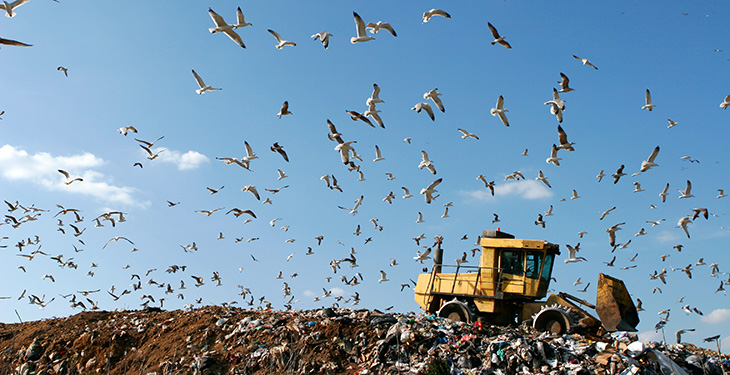The business environment and the authorities emphasized the need for collaboration to ensure the implementation and development of the recycling/return system. This system, in turn, will contribute to a cleaner environment and the transformation of waste into resources. Ideas and suggestions regarding collaboration, through financing, know-how and appropriate legislation, were debated on Monday, during the symposium “Waste management/recycling, with a focus on solutions for the Guarantee-Return System,” organized by the Romanian-German Chamber of Commerce and Industry (AHK Romania).
German experience in the field of waste separation and treatment lasts for at least two decades, and German companies have the potential to bring the necessary technology and knowledge to Romania. “This process is in an early phase here, and now is a good time to get involved,” said Sebastian Metz, general director of AHK Romania, at the opening of the symposium. The government wants to invest in adequate facilities, but before making significant investments in efficient recycling facilities, progress is needed in terms of waste collection and separation. “On the other hand, for a large part of the population environmental protection is not a topic of interest and there is almost no awareness of the long-term impact on the environment, in terms of their own behavior,” he said, noting that Romania is currently under increasing pressure to comply with European environmental legislation.
Present at the event, the Minister of Environment, Water and Forests, Mircea Fechet, said that Romania currently has a 12% waste collection rate and that it risks penalties that can go up to fines from the European Commission. “This guarantee-return system (SGR), which we thought of four years ago, has the role of changing the situation, as there is currently an integrated management of waste collection in each county. It is the second largest SGR in Europe, after the one in Germany, but it will be the largest public-private partnership between the Romanian state and the private sector,” he said, adding that he was inspired by the German experience when writing the SGR legislation. In a first phase, the Romanian SGR will manage single-use packaging, but it will also expand to other packaging, including glass. Recycling figures are also expected to be similar to those in the EU, i.e. above 90%. “Besides all the good things that will happen, and above all enjoying a cleaner nature, SGR also means business opportunities, new technologies that will come to Romania. We will have seven billion pieces of packaging to recycle every year. Not only the Ministry of the Environment, but also the entire Romanian government is engaged in this process,” stated Fechet. He expressed his confidence that all the German companies present at the event will identify a potential in Romania in terms of waste management.
The representative of the German Embassy in Bucharest, Sandrina Köbinger, shared some ideas from Germany’s 20-year experience regarding the storage system of single-use PET (bottles and cans): retailers and the beverage industry tried to prevent through actions suing the filing of the deposit, but they lost all the lawsuits. Since its introduction, the deposit and return system has been expanded several times. Recently, Germany introduced the obligation of reusable packaging for catering companies as well. Currently around 96% of disposable cans and PET and glass are collected and put into the recycling cycle.
In a circular economy, packaging should have as high a degree of reparability as possible, so that there is no longer a need for storage and recycling, Mihaela Frasineanu, state adviser in the prime minister’s office, said. “Increasing the value of the fee for waste storage is a solution that should help this system. Also, if the packaging is clean, it helps recycling,” she said. The implementation of this system is both an opportunity for dialogue between the private and public environment, as well as an opportunity for investment. “At the government level we have a circular economy committee. There will be commissions coordinated by representatives of the ministries, which will include representatives of the business environment and the banking system. In December we will present the funding lines for these actions. Business can really grow,” she explained.
The need for public-private partnership is essential for the success of this program, said Roxana Mînzatu, secretary of state in the Department for integrated evaluation and monitoring of programs financed by public and European funds within the government. “European and Romanian money can be accessed by public authorities to support integrated waste management systems, but there are also opportunities for the private sector to participate in the realization of the circular economy,” she said. Roxana Mînzatu referred, among other things, to the European funds for SMEs, worth 620 million euros within the Just Transition program, which takes place in six counties: Gorj, Hunedoara, Dolj, Galați, Prahova and Mureș.
